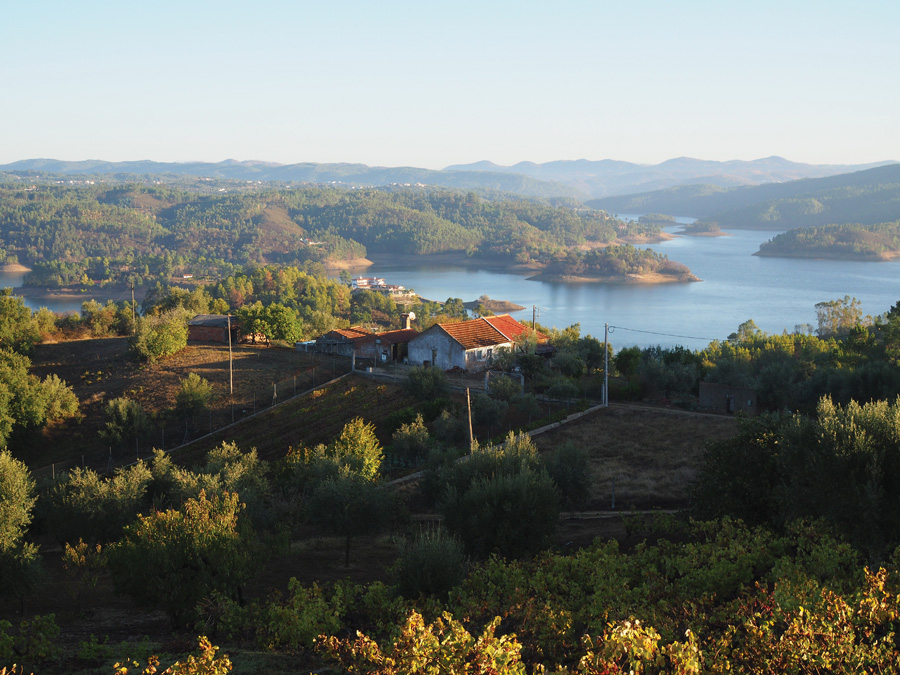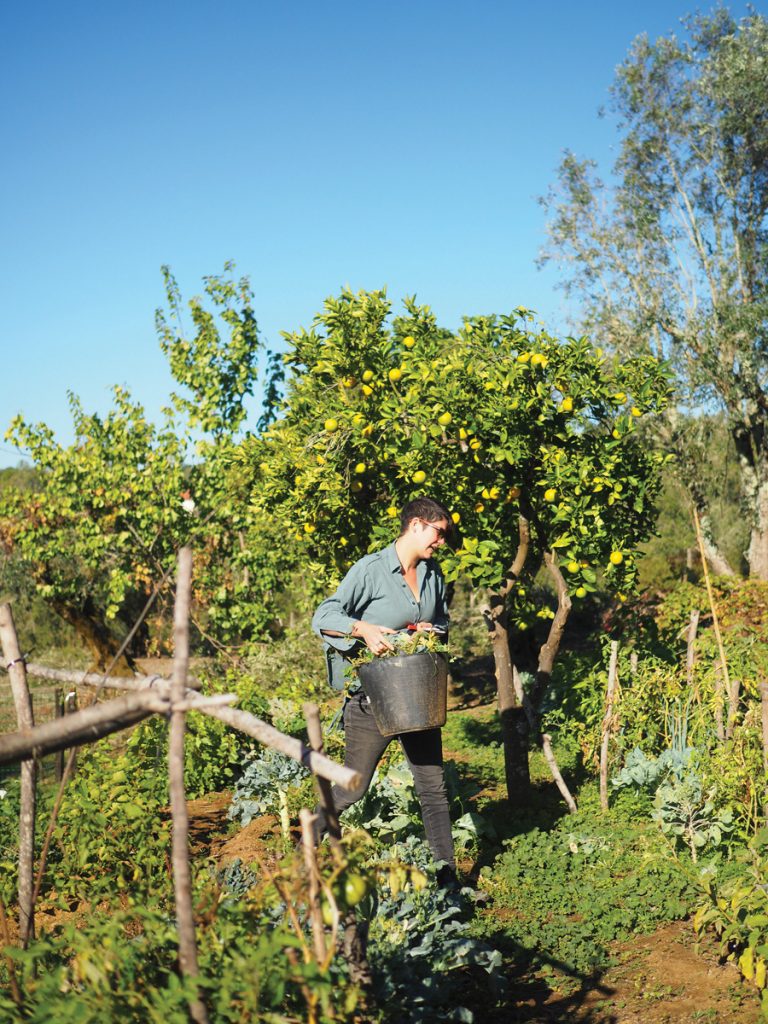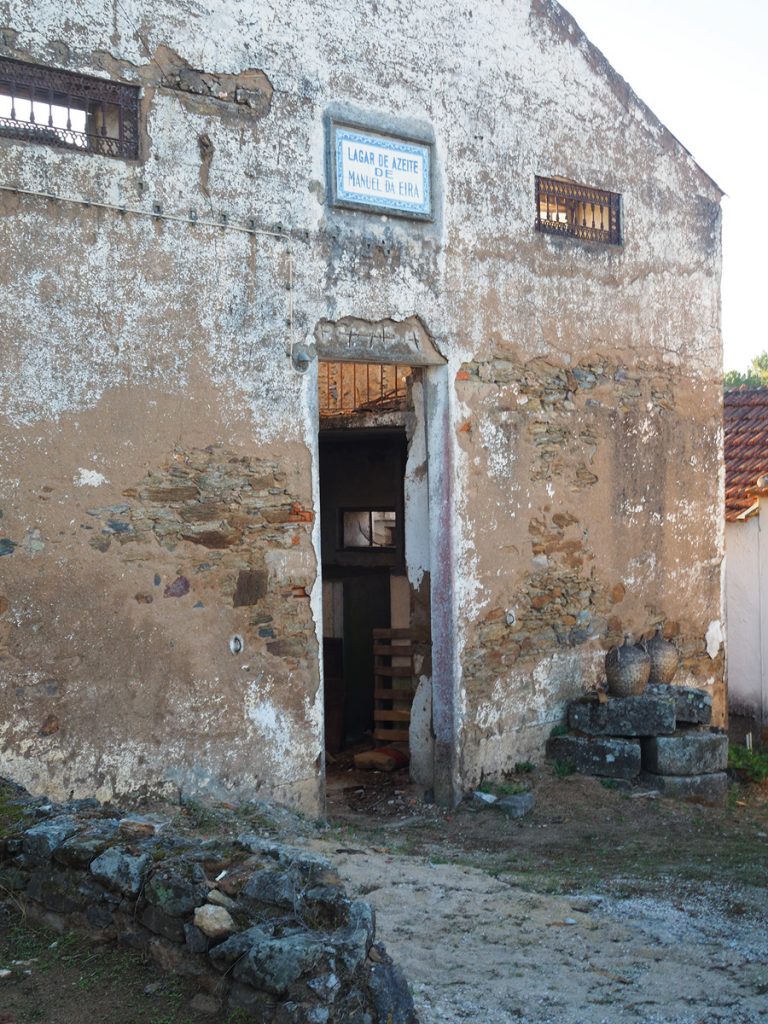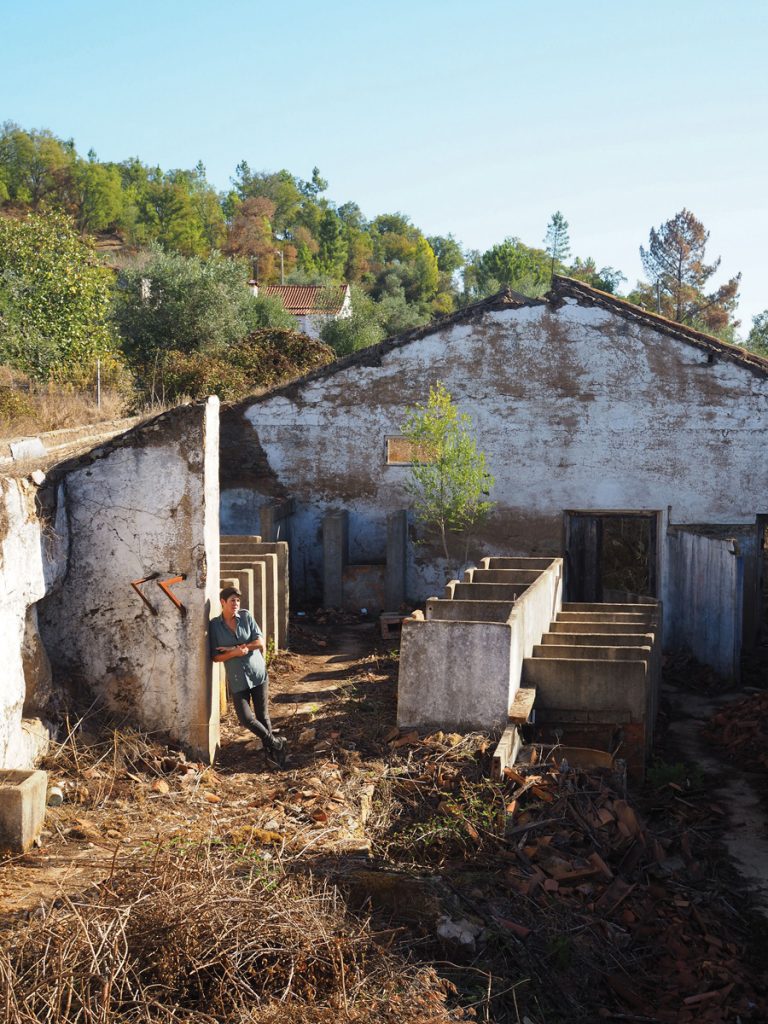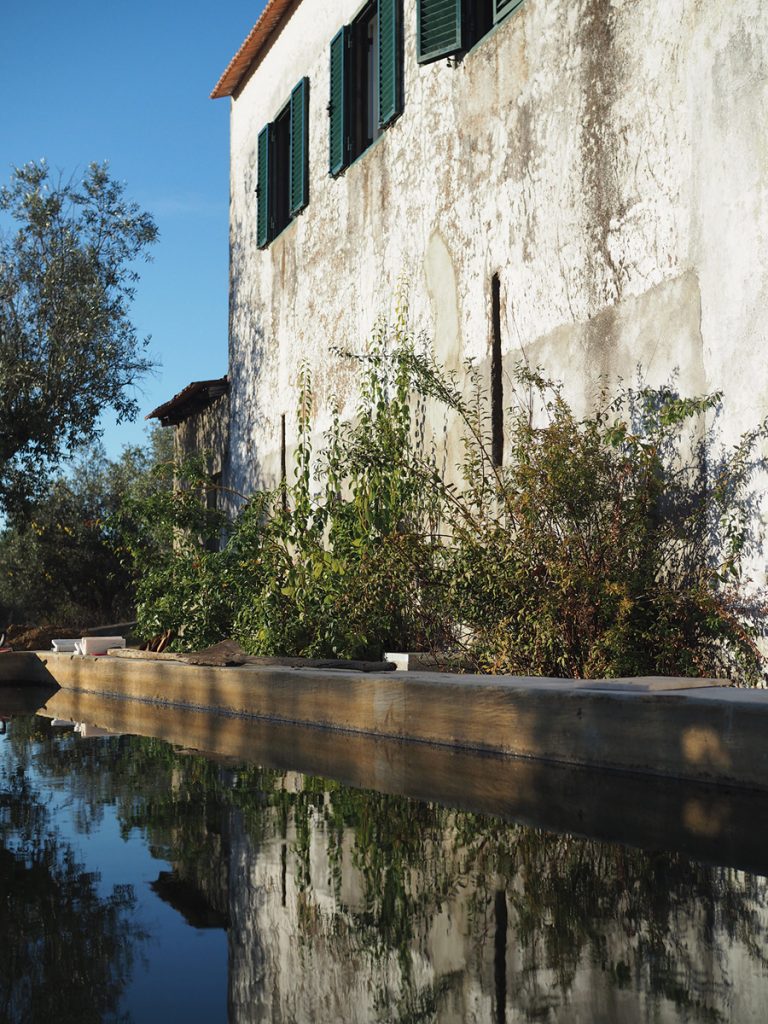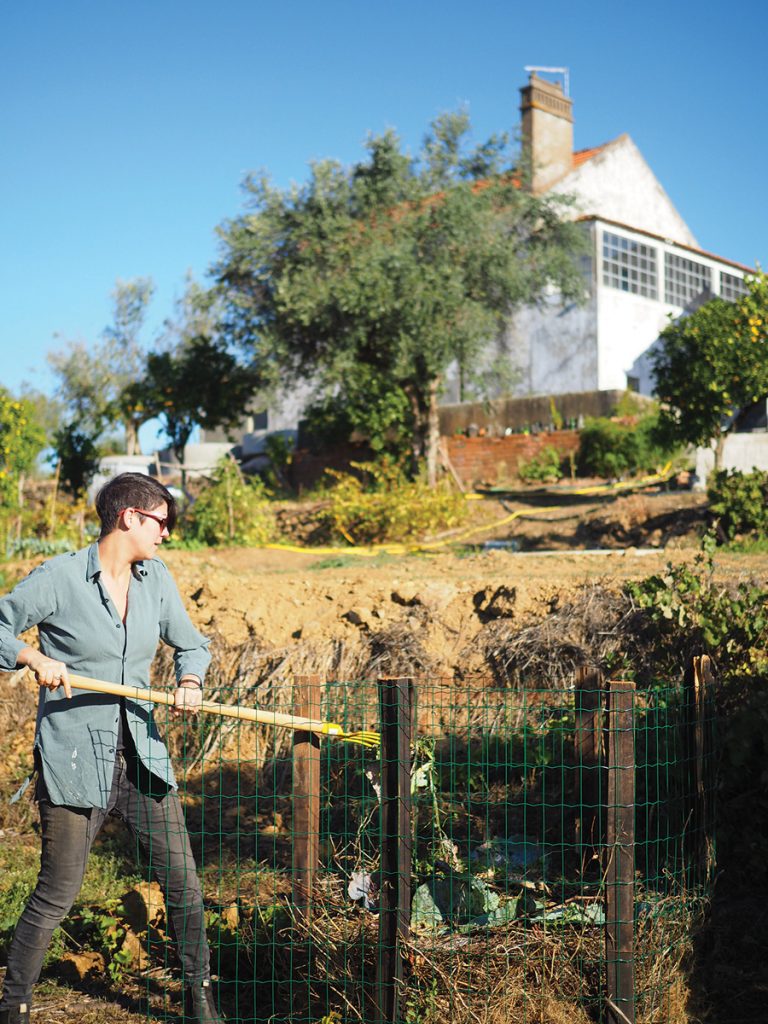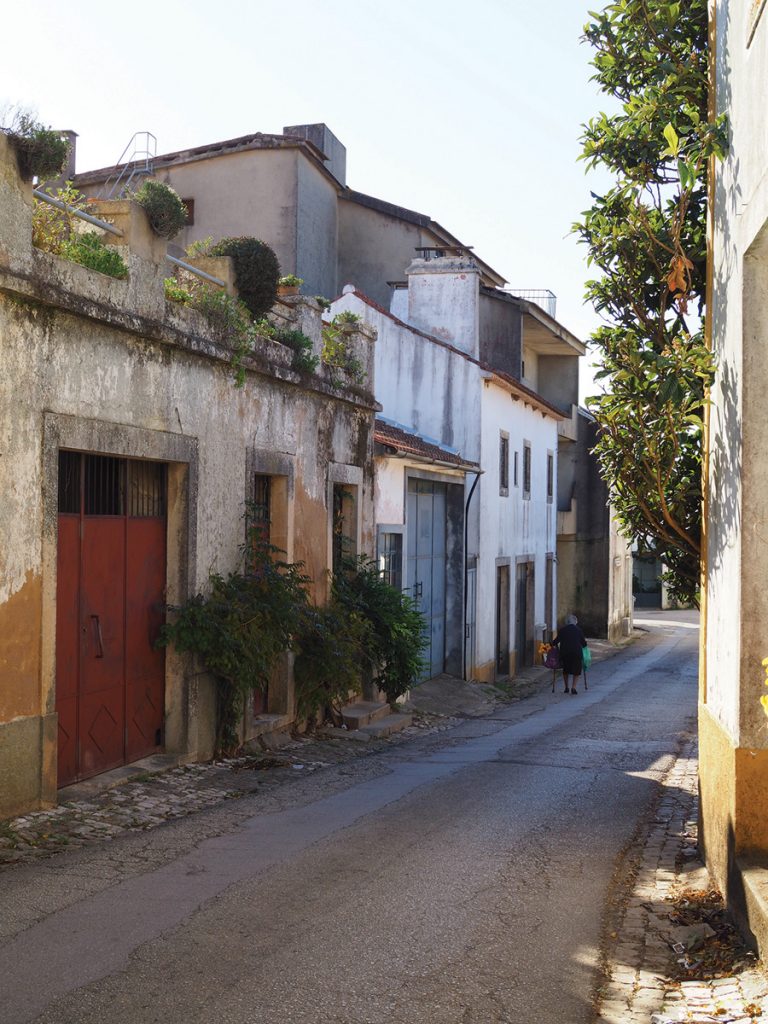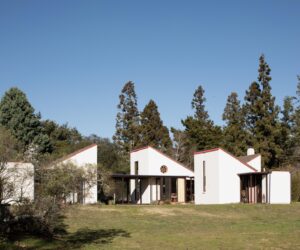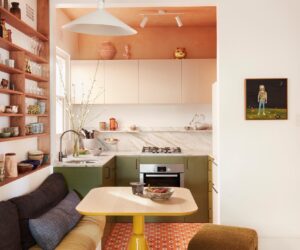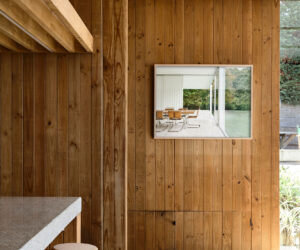Provocateur in Portugal
Dr Leyla Acaroglu is in the midst of restoring a small Portuguese farm to create a cultural destination for change-makers.
Dr Leyla Acaroglu is an award-winning designer and social scientist and has a vision of a “New World”. And just like that of the 16th century explorers, it is based on disruptive design. Great changes occur when a visionary peers over the edge; and from high on a ridge in Central Portugal, Leyla (UN Champion of the Earth) gazes across the Casa do Lagar and into the future.
Casa do Lagar once had a thriving olive mill servicing the local region. With a love of Portugal and its people – and with the planets aligning – Leyla purchased this one-hectare rundown farm in mid-2017. There is not a hint of her being daunted by the scale of work to restore the Quinta (Portuguese for small farm). Leyla has inherent drive and rises each day and charges into making a difference.
The Quinta is ideally situated on the south side of a ridge overlooking the olives and fruit trees. Back up the road is the old village of Serra, with sweeping views across valleys and down to the lake of Castelo do Bode. There is plenty of ground water on the farm, situated in the most fertile region of the Iberian Peninsula. Leyla’s solid brick house adjoins the larger farmhouse, which will be converted to guest living quarters.
Leyla, founder of The UnSchool, is creating the CO Project to run curated workshops on the farm hosted by specialists. These will include designers, artists and academics guiding rural studio projects. “Now I have to create a cultural destination for changemakers, that’s my goal.” The plan is to have accommodation in the old mill with each room having its own personality. Firstly the roof will have to be rebuilt as it has been destroyed by wood worm.
To achieve the rejuvenation of Casa do Lagar, Leyla is working closely with skilled local talent. Jose Vincent previously managed large-scale civil engineering projects and is now Leyla’s “go to” guy to supervise the various projects. This region of Portugal has produced a wealth of skilled stonemasons who have been critical in the construction of many of Lisbon’s major buildings. With this talent to tap into, and the abundance of regional knowledge, Leyla has good resources to achieve her goal.
The renovated mill will accommodate up to twenty visitors. “We are regenerating that building … taking that fabric and creating something new from something old, which has lost its value, and revaluing it,” says Leyla. “We are giving the building a new narrative, respecting its past but giving it a new future.”
The farm will be reinvigorated to deliver edible produce. Already the olive trees are being pruned to produce fruit after a 10-year hiatus. The orchard includes a dozen orange trees, plus lemon, apple, quince and pear trees. A shared small barn has been built to house chooks, a goat and a sheep. The all important bees will also be introduced to provide their bounty and natural pesticide benefits. In mid-autumn 2017 a meandering veggie patch is producing eggplant, cauliflower, tomatoes, chillies, piemento (Spanish peppers) and zucchini.
Leyla aims to create a location of rejuvenation where workshop visitors are surrounded by the activities of the farm. She envisages an environment where “you can learn very quickly from the diversity of other people’s experiences”. The invited curators will have a background that involves making change. The mill will not be a retreat to relax, but rather an escape to energise the mind. “The brain spa concept is to regenerate your brain, body and energy in a living laboratory,” Leyla attests.
The interactivity of the animals, plants and climate will demonstrate, firsthand, the ideals behind regeneration that the natural cycles exhibit. It is in this crucible that collaborative opportunities in the large-scale topics of the workshops will develop. All in all, the CO Project living laboratory is set to create optimum change.
